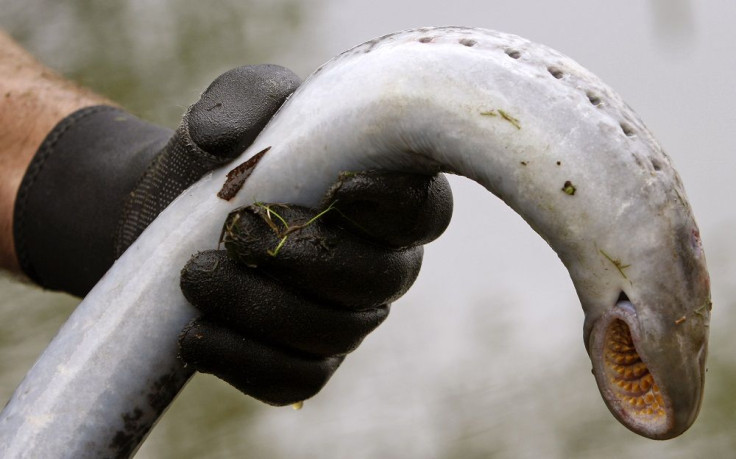Birds Drop Blood-Sucking Fish From The Sky In Alaska

Following the receipt by the Alaska Department of Fish and Game of calls from residents reporting fish falling from the sky in several locations in the state, the department investigated and found that birds were responsible. In one week, four such sightings were reported, according to a post in the department’s Facebook page.
One such location is a thrift store’s parking lot in Value Village in Fairbanks, Alaska. The rain of fish that looked like eels with teeth perfect for latching on another animal was reported last week, according to Washington Post.
It turned out that birds were responsible for the unexpected rain of live arctic lamprey. Gulls caught the fish and flew with it but could not hold on to their prey for a long period, reports Waffles at Noon. The bruises and cut marks of the fish are evidence that the birds picked the fish out of Chena River with their bills and later dropped the fish that were squirming while mid-air.
The lampreys are endemic to Alaska, but most residents are not familiar with the fish because when the fish is young, it lives in the mud. But when the fish mature, it migrates under the ice, explained Erik Anderson from the department.
Store employees placed the fish in a bucket of ice and gave the sample to the department for analysis. Besides the store parking lot, there was a rain of lampreys in three other locations in Alaska, including a man’s lawn.
Nancy Sisinyak, sport fish information officer of the department adds that the lampreys are parasites on other fish and other marine animals by latching on the other sea creatures using their rasping teeth and living off the nutrients of their hosts. She said the V shape comes from the gull’s bill that scrapes the gills of the lamprey when it attempts to free itself by wiggling, causing the drops to drop their catch.
Lampreys can live both in salt and fresh water, but it returns to rivers to spawn where female lampreys could release up to 100,000 eggs each. But after giving birth the adults die soon after fertilisation.
To contact the writer, email: vittoriohernandez@yahoo.com





















